Durga Puja Celebrations 2022: Rituals That Make Durga Puja Special
Although theme pujo is popular these days, the conventional methods and rituals will never be replaced.

New Delhi: Durga Puja is synonymous with Bengal; it is the essence that completes the state's age-old customs. Every year, Durga Puja is celebrated with great zeal. Although theme pujo is popular these days, conventional methods will never be replaced. Let's have a look at all the age-old rituals and traditions without which Durga Puja seems incomplete:
1. Mahalaya
Mahalaya marks the beginning of the Durga Puja celebrations. It is the day on which the goddess Durga is said to have descended to Earth after defeating the wicked demon Mahishasura. This day marks the beginning of the Devi Paksha and the conclusion of the Pitru Paksha, which is a season of grief. Goddess Durga is said to embark on her week-long voyage with her children — Ganesha, Kartik, Lakshmi, and Saraswati — on a vehicle of her choosing which could be a palanquin, a boat, an elephant, or a horse.
Mahalaya is observed, about seven days before Durga Puja. Every Bengali home gets up early in the morning, even before the sun, to listen to Birendra Krishna Bhadra's booming rendition of "Mahishasura Mardini," a compilation of songs and chants. It is that time of the year, when the familiar tunes of ‘Mahishasura Mardini’ emanates from every Bengali house across India and, possibly, the world. It is also the day when the eyes of the Goddess are created on the idols.
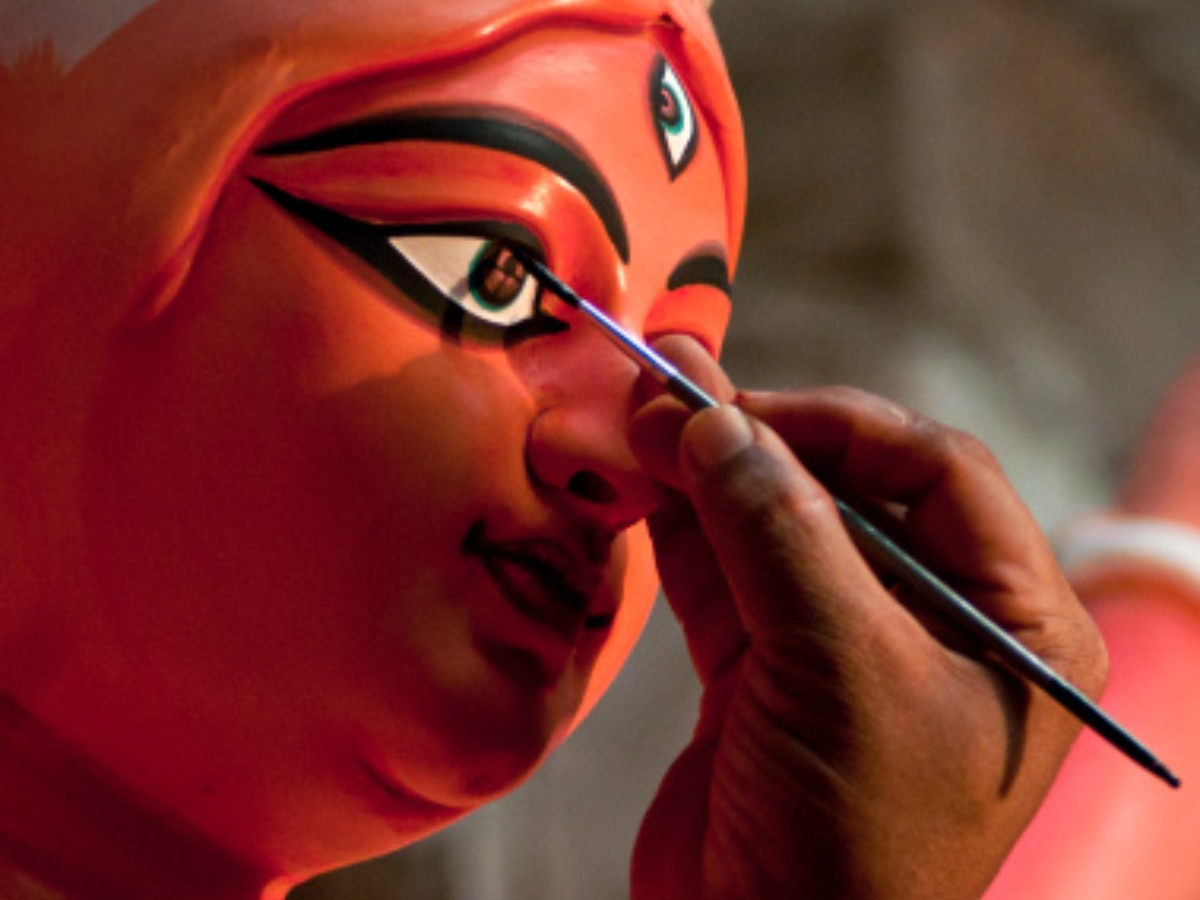
2. Bodhon
One of the important Durga Puja ceremonies is bodhon. It is the invocation of the goddess Durga. On "Shashthi" evening, Bodhon, or the invocation of the deity, is performed. The Goddess's face is also revealed as part of this ritual and she is awakened in Bodhon. This ritual marks an invitation to the yearly celebration.
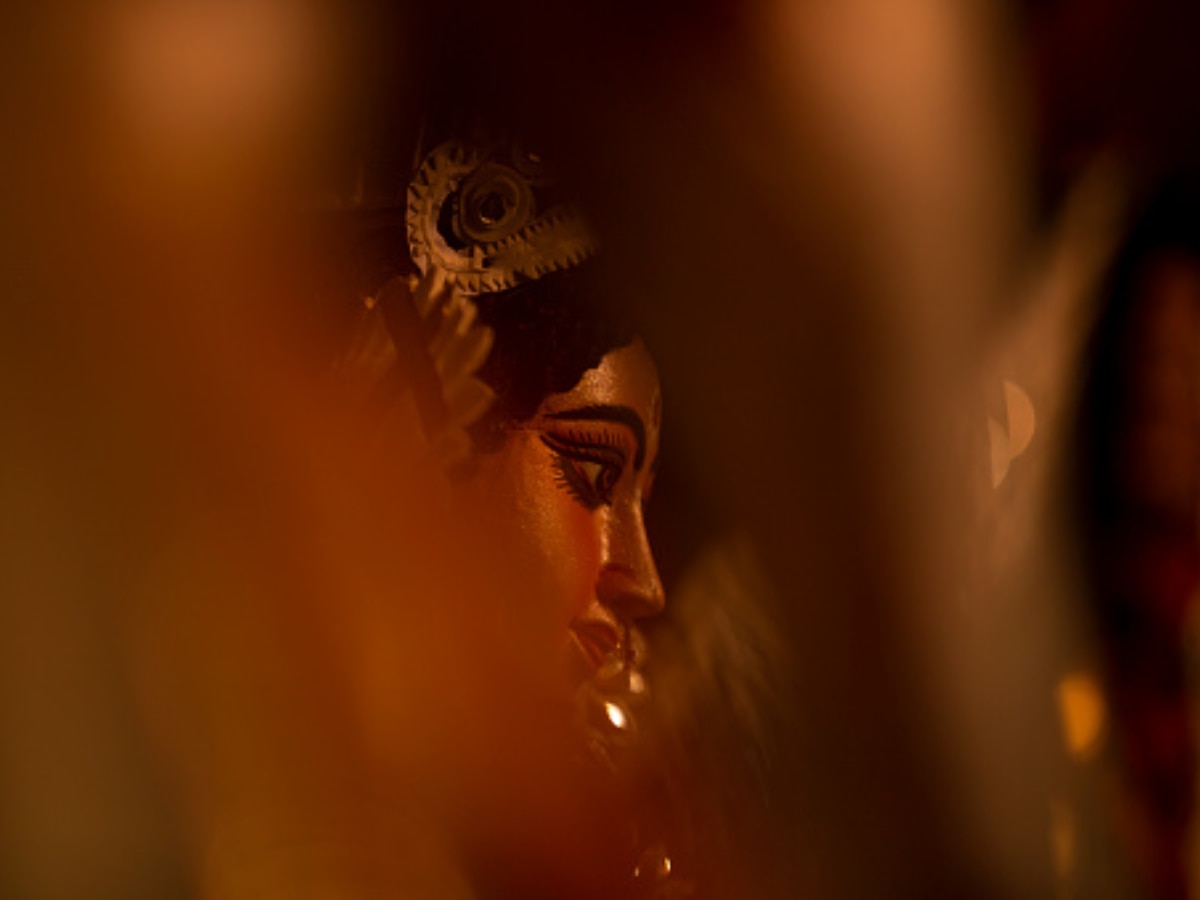
3. Nabapatrika Snan
Nine plants are religiously bathed in the Ganga river or any other lake on the seventh day of Durga Puja, which is Saptami. The nine leaflets are brought for a holy wash after being knotted into a bundle. Together, these nine leaflets represent the nine incarnations of Goddess Durga. After the sacred wash, the Nabapatrika is dressed in a crimson saree and then its leaves are smeared with vermillion. It is then set on a clean pedestal that is beautifully adorned. After that, the Nabapatrika is worshipped with sandalwood paste, flowers, and incense sticks before being set up on Lord Ganesha's right side.
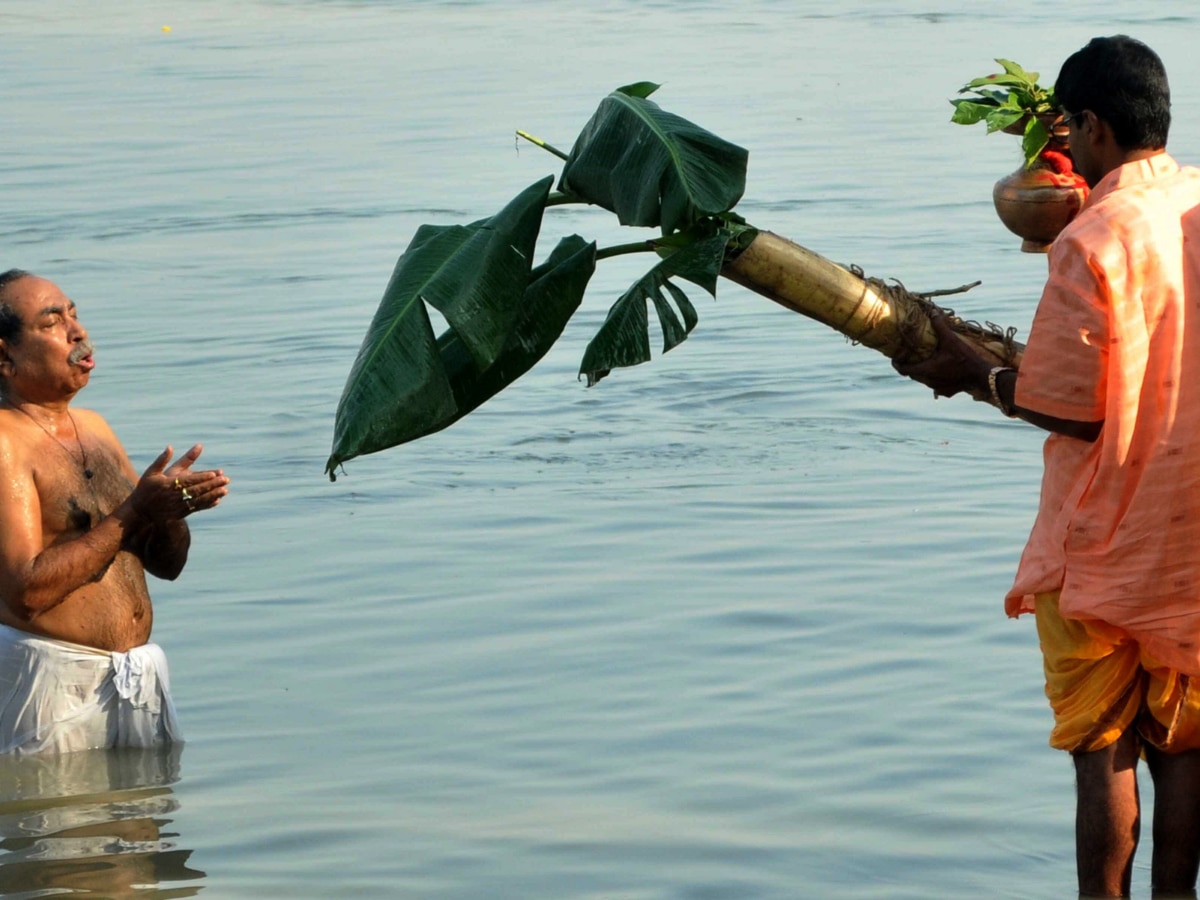
4. Anjali on Ashtami
Maha Ashtami is said to be one of the most important days of this festival. During Durga Puja, the Pushpanjali is offered on all days. The day of Durga Ashtami, on the other hand, is regarded as the most auspicious and crucial for offering Anjali to Goddess Durga. Most Bengalis make sure that they offer Anjali at least on this day, if not every day. During Puja days, many devotees observe a day-long fast and break it after delivering Pushpanjali to Maa Durga in the evening. The day-long fast is broken by taking Bhog after evening Aarti and Pushpanjali.
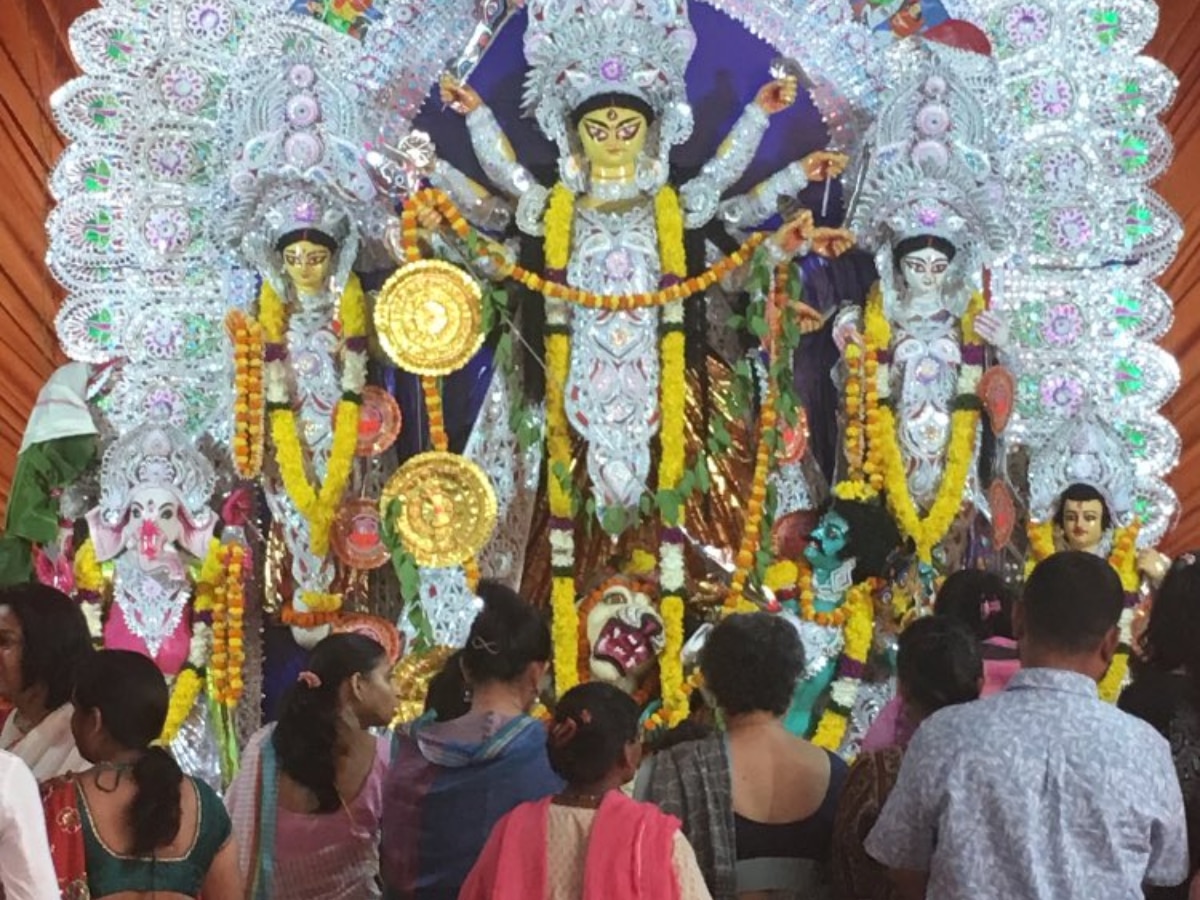
5. Kumari Puja
Kumari Puja, also known as Kanya Puja or Kumarika Puja, is an important ceremony performed during Durga Puja. On Ashtami, Kumari Puja is performed, in which young girls are worshipped, who symbolise the nine forms of Goddess Durga. The ideal girl for Kumari Puja should be healthy and free of any diseases and flaws. A lady bows to the little girl worshipped as Goddess Durga and accepts her blessings. The little girl is seated on a special pedestal during Kumari Puja, and people wash her feet and recite mantras in honour of Goddess Durga.
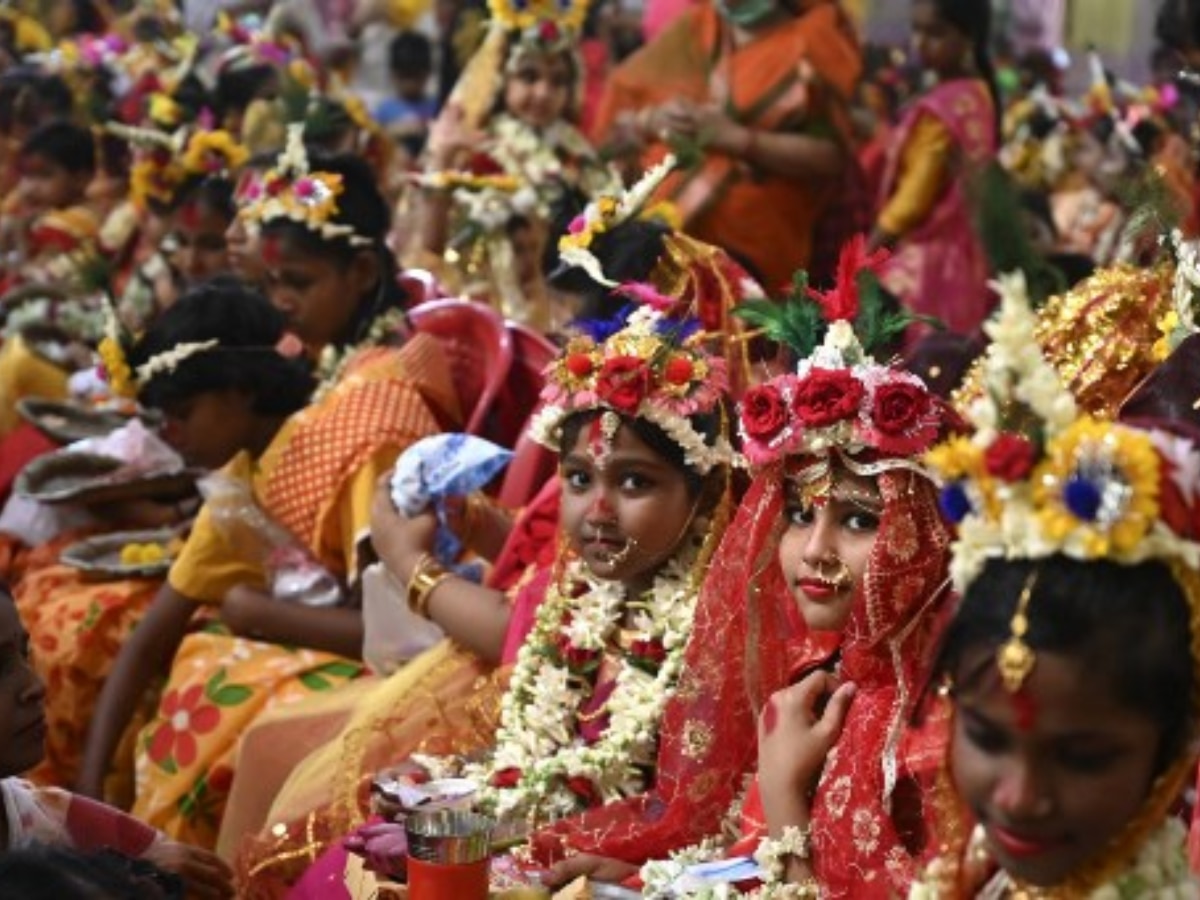
6. Sandhi Puja
Sandhi Puja is a highly essential ceremony of Durga Puja that is conducted at a very critical time. It is performed at the precise point where the Asthami tithi finishes and the Navami tithi begins. The Sandhikhan is the last 24 minutes of Ashtami and the first 24 minutes of Navami. Final offerings to Goddess Durga are given on the eve of Navami. As a result, the arrangements for Sandhi Puja are generally elaborate. It is done with 108 lotuses and 108 clay oil lamps. A single full fruit (ideally red), hibiscus flowers, a saree, uncooked rice grains, jewellery (if available), and bel leaves or a garland of 108 bel leaves are also required.
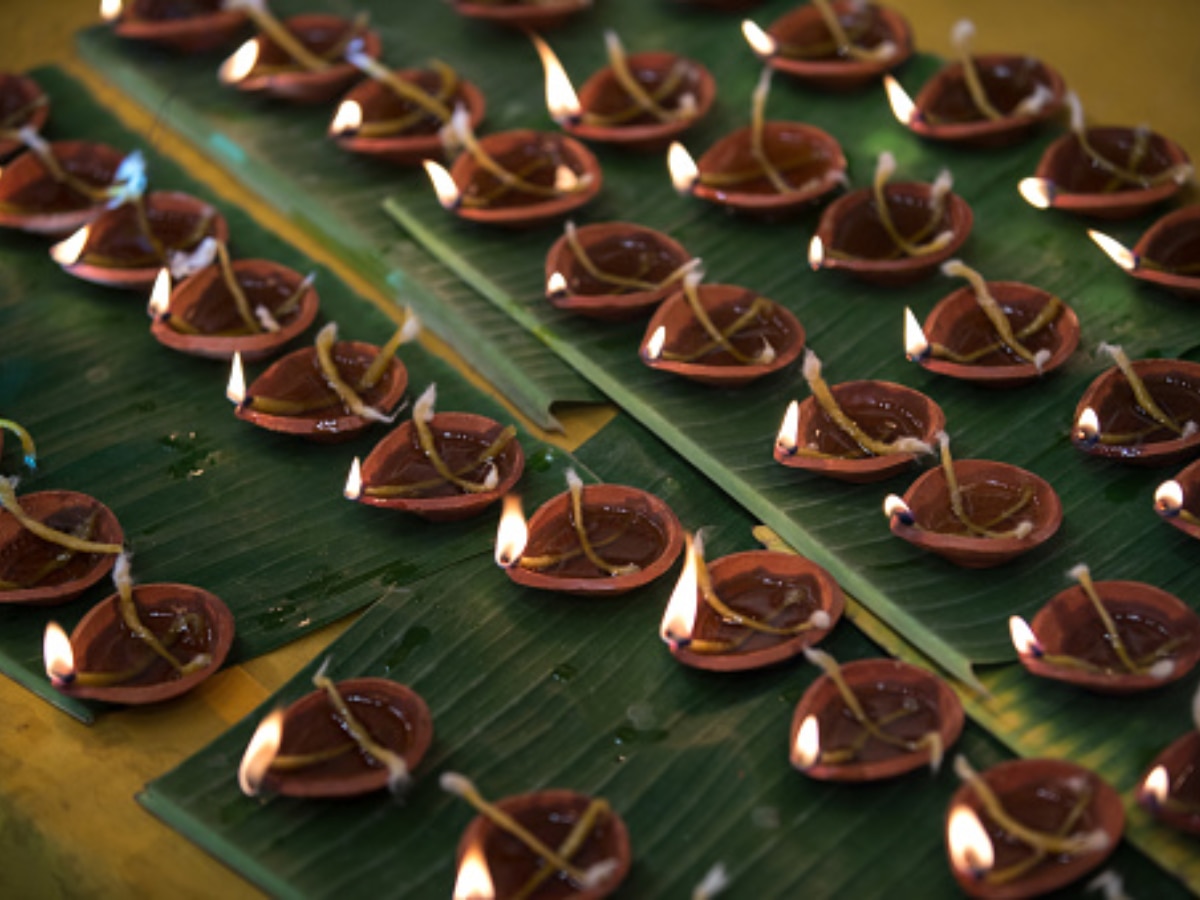
7. Dhunuchi Naach
On entering a Durga Puja pandal in the evening, the sounds of dhak and the aroma of incense sticks and aromatic smoke fill the air. While Durga Puja is incomplete without all of these elements, one thing that undoubtedly captures the soul of the event is the legendary Dhunuchi Naach. Dhunuchi Naach is a devotional dance performed in the evening, during Durga aarti, in which dancers dressed in colourful attire balance clay bowls filled with coconut husks, flaming charcoal, and powdered incense in their hands and mouth. The scene is breathtaking as the dancers move to the beat of the dhak.
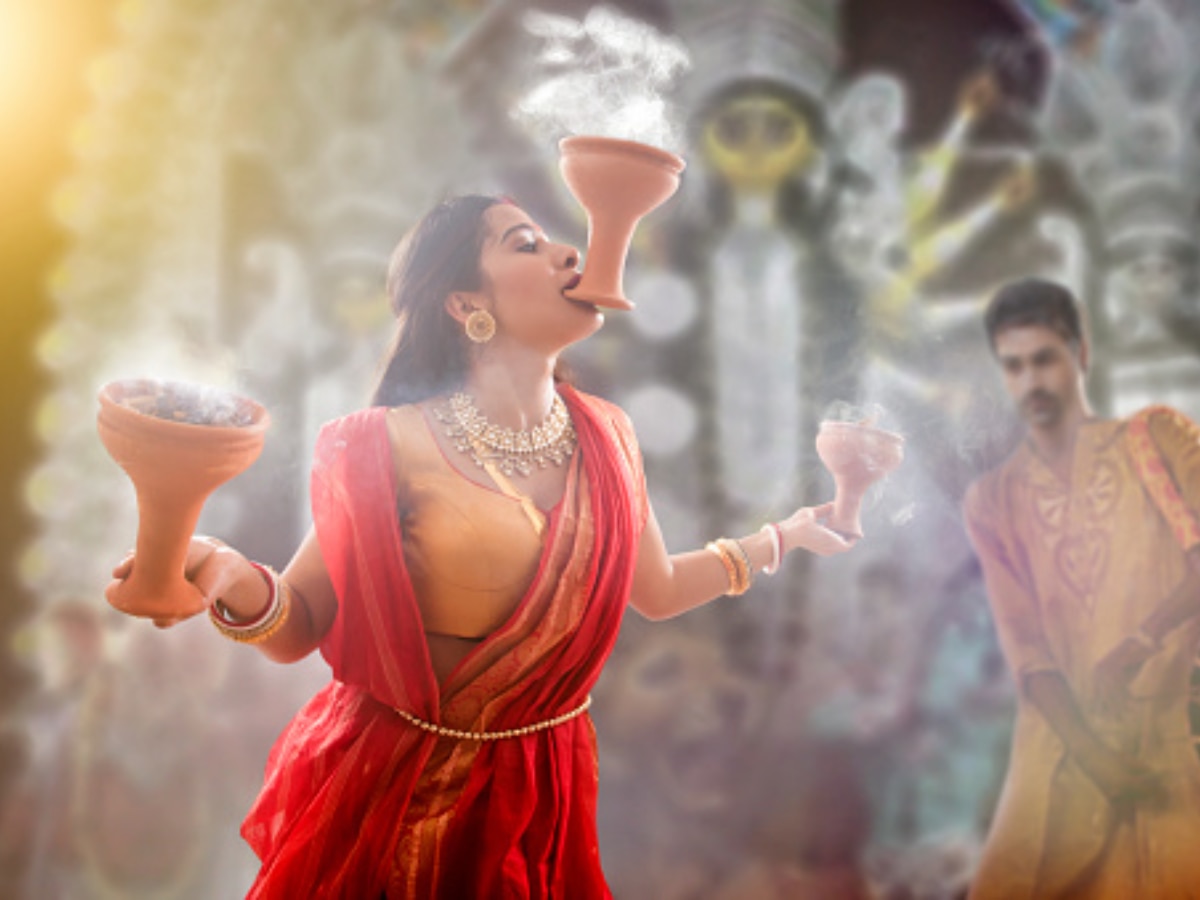
8. Sindur Khela
On the day of Vijayadashami, married Bengali Hindu women apply sindur on the goddess's forehead and feet and offer her sweets. Then they put sindur on each other's faces and exchange gifts. This rite symbolises a woman's power in protecting her husband and children from harm. Through the Sindur Khela ritual, Bengali Hindu ladies pray for a long and happy married life for each other.
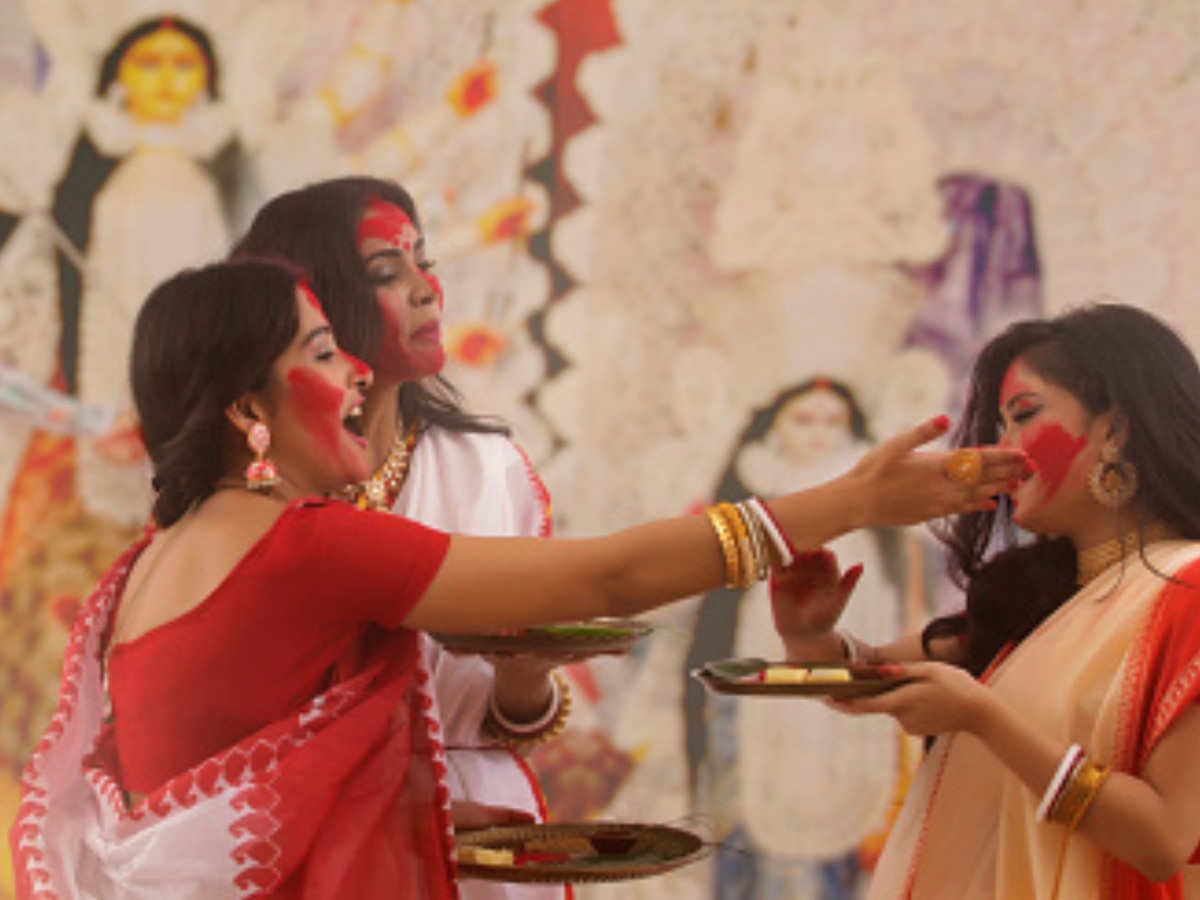
9. Visarjan
Durga Visarjan signifies the conclusion of the celebrations of Durga Puja. This occasion marks the tradition of immersing the Goddess Durga idol in water. According to legend, this is the day when Maa Durga returns to Mount Kailash. For the immersion of the idol, a large procession is organised in which the goddess's idol is dressed out and taken to a sacred pond or river for immersion. Devotees attend the Durga Puja visarjan procession, singing traditional songs and dancing to the beat of the dhaak to bid farewell to the Goddess.
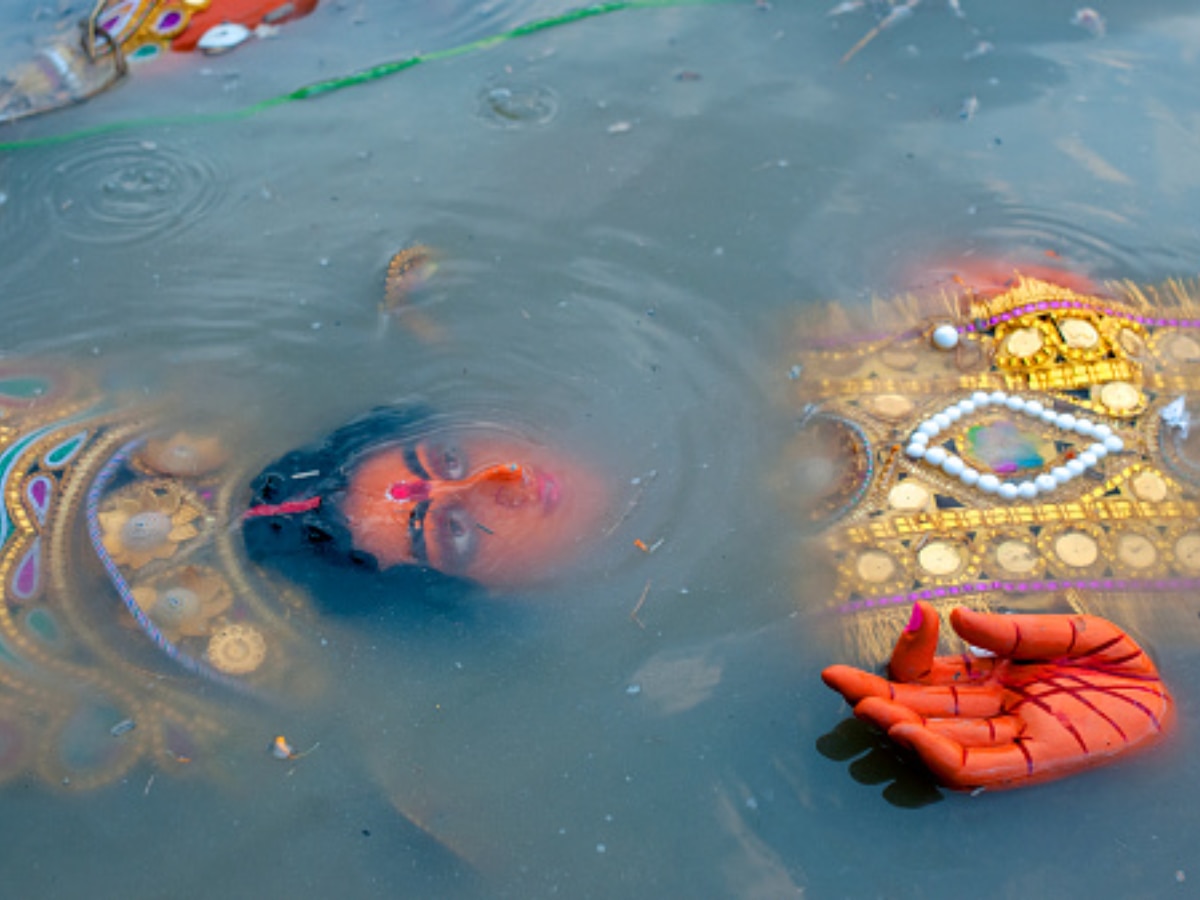
10. Bijoya
After Goddess Durga leaves, the auspicious "Bijoya" period begins. This lasts until Diwali and is a time to celebrate the triumph of good over evil. Following the visarjan (idol immersion), people start hugging and giving out sweets to celebrate Bijoya, which means "victory" in Sanskrit. After the visarjan, Neelkanth (Indian Roller) birds are released in some regions to symbolise peace descending upon the earth.
Traditionally, Bengalis use this occasion to visit friends and family members at their homes and exchange "Shubho Bijoya" pleasantries, while the younger generation touches the elders' feet to seek blessings.
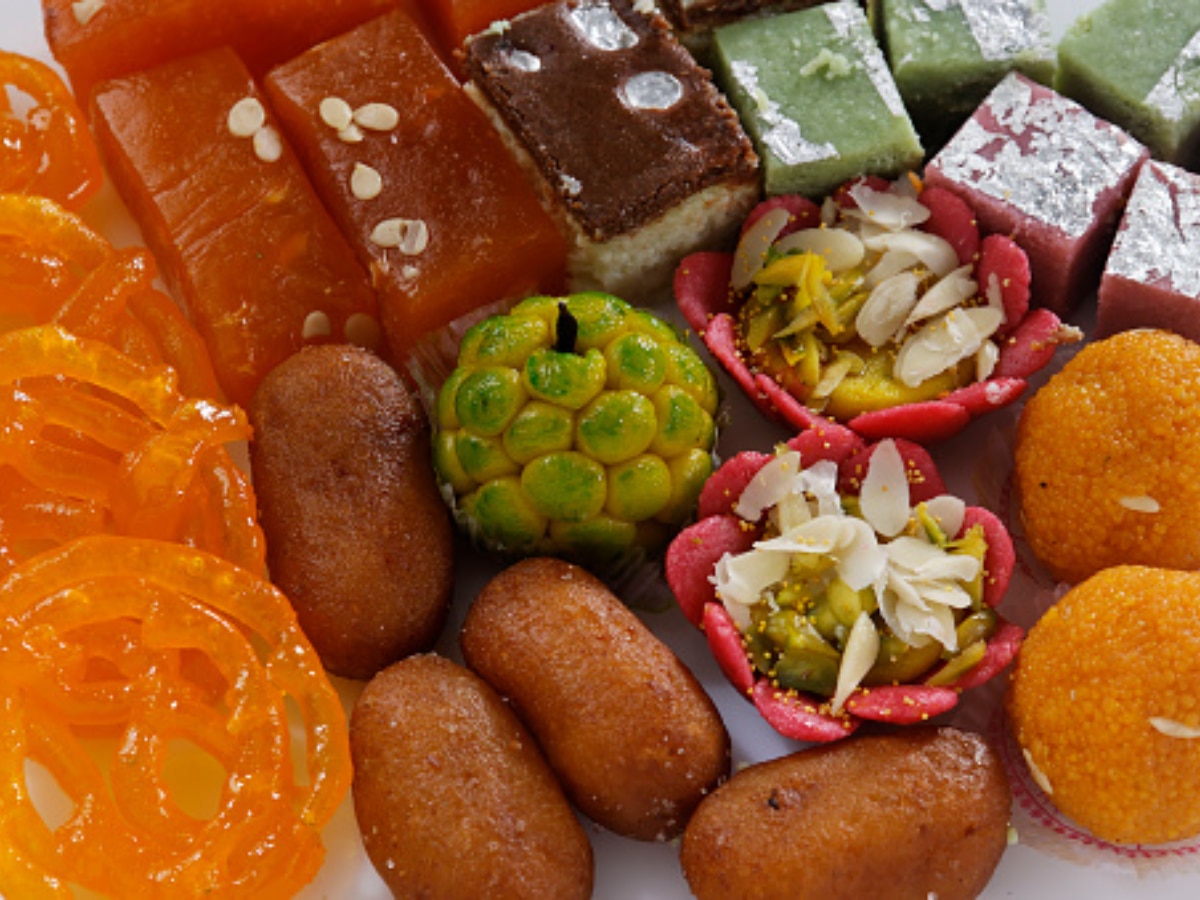
Related Video
Union Budget 2024: Nirmala Sitharaman Reaches Parliament Ahead Of Budget Presentation Today | ABP News






































